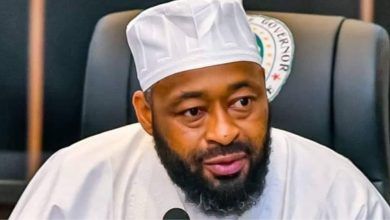
Nigeria’s power generation saw a notable increase of 34% in 2024, according to the Minister of Power, Adebayo Adelabu, who presented an update during a budget defense session with the Senate Committee on Power on Monday.
Adelabu revealed that the country’s average power generation capacity, which stood at 4,100 megawatts (MW) in 2023, had risen to 5,528 MW by the end of 2024. The growth in generation was attributed to the addition of the Zungeru hydroelectric power dam, which contributed 700 MW, and significant improvements in output from existing hydro and thermal plants.
“We added a new hydroelectric power dam, Zungeru, of 700 MW, and there was a tremendous increase in the generation by other existing power generating companies,” said Adelabu. Although the minister set an initial target of 6,000 MW, unforeseen challenges, including grid disturbances, hindered its full achievement. Nevertheless, he emphasized that the shortfall was minimal.
Regarding energy access, Adelabu highlighted progress, with the percentage of Nigerians with access to electricity rising from 59% in 2023 to 64% in 2024. This growth was driven by grid expansion and renewable energy projects, including solar, small hydro, and wind energy.
Despite these advancements, the minister acknowledged the ongoing challenge of metering, with approximately six million customers currently metered, leaving over seven million unmetered. To address this, the Ministry of Power secured a N700 billion fund and plans to procure at least two million meters annually starting in the first quarter of 2025. The goal is to eliminate the metering gap and reduce electricity billing fraud.
Adelabu also discussed the continued challenges faced by the power grid, particularly the unresolved Shiroro-Kaduna-Mando transmission line. This crucial line, which was vandalized in October 2024, remains out of service due to insecurity in the region. The failure to repair the line has placed additional strain on the grid, contributing to frequent collapses. Adelabu described attempts to fix the line as unsuccessful, with engineers being chased off by terrorists and bandits.
“We tried to fix it, but our engineers were chased by terrorists and bandits with heavy weapons, it was like a civil war. That’s how bad it is,” he explained.
Despite these setbacks, the minister stated that the federal government was focused on revitalizing the national grid, which he described as old and dilapidated. In 2024, the grid experienced eight collapses, not 12 as previously reported, with five being full collapses and three partial collapses caused by generation issues.
Looking ahead, Adelabu expressed optimism for 2025, with plans to continue efforts to address the challenges in the power sector, particularly through the Presidential Power Initiative to revamp the grid and improve infrastructure.
In response, Senate Committee Chairman Eyinnaya Abaribe raised concerns about the government’s ongoing funding of power distribution companies (DisCos), pressing the minister on the sustainability and effectiveness of such investments.





